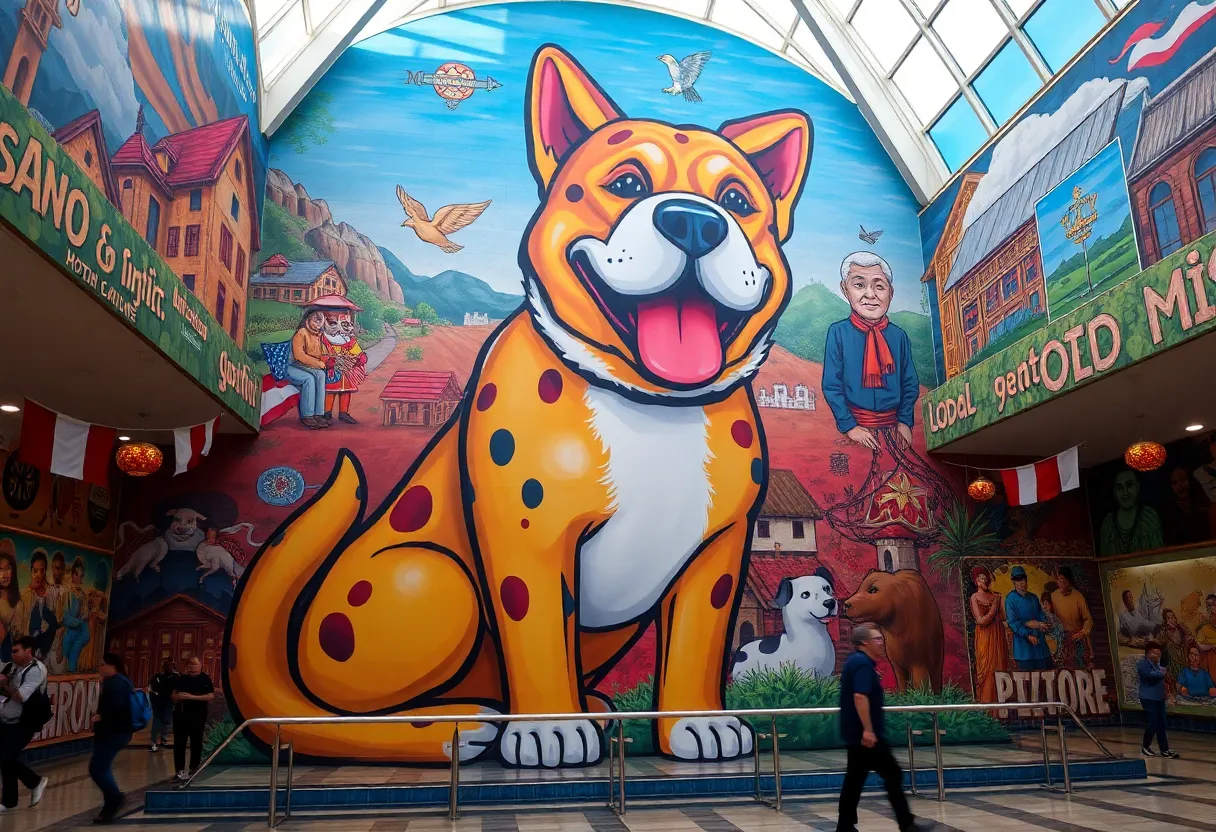News Summary
West Virginia’s State Capitol faces a lawsuit over murals depicting Governor Jim Justice’s dog. Plaintiffs allege violations of purchasing laws. The lawsuit seeks to void the contract and pause future work, citing a lack of transparency in the approval process. Reid-Smith’s team dismisses the suit as meritless. This case raises critical concerns about state-funded projects and legal adherence.
West Virginia State Capitol is embroiled in controversy following a lawsuit filed against cabinet secretary Randall Reid-Smith and other state officials regarding the installation of murals featuring Governor Jim Justice’s dog, Babydog. The plaintiffs, Gregory Morris and Tom Acosta, allege that the process leading to the mural’s installation violated state purchasing requirements and laws pertaining to open meetings.
The lawsuit aims to void the purchasing contract for the murals, halt payments on the project, and remove the existing murals. Additionally, the plaintiffs demand any future work on the project be paused until a fair and competitive bidding process takes place.
Reid-Smith’s legal counsel responded by filing a motion to dismiss the lawsuit, describing it as an “attention-seeking lawsuit” lacking merit. The motion contends that the plaintiffs have not demonstrated any actual harm, asserting their grievances stem from personal disagreements rather than legal infractions.
Details regarding the mural project reveal a complex history. The initial decision to add murals to the Capitol was made nearly a decade after the Capitol Building Commission approved a mural project in 2010, a project that was ultimately abandoned due to funding issues. In 2021, Reid-Smith allowed the mural project to proceed without seeking a new vote from the Capitol Building Commission.
The contract for the installation of the murals was awarded to John Canning & Co., a Connecticut-based firm that had originally won a bid in 2010. Although four murals have already been installed and unveiled, with another four in the works, the Capitol Building Commission has recently voted to ratify the project, which Reid-Smith’s team argues should render the lawsuit moot.
The controversy intensified with the inclusion of an image of Babydog in the murals, which was not part of the original designs submitted for approval. The plaintiffs argue this inclusion represents an instance of governmental influence being improperly used for personal benefit. They allege that undisclosed meetings held by a subcommittee also violate open meeting laws.
Reid-Smith stated that a committee consisting of executive branch representatives unanimously agreed to feature a dog resembling the governor’s pet, although he acknowledged that the public had not been informed about this decision-making process.
The financial aspect of the mural project has raised eyebrows, with costs already surpassing $350,000. Additional expenses are anticipated as further murals are completed. Moreover, the lawsuit points out that the original murals lacked diversity, which prompted Reid-Smith to oversee enhancements to include more varied representations.
This ongoing lawsuit and its implications have drawn attention to the processes governing state-funded projects and the ethical considerations surrounding them. As the legal proceedings unfold, the future of the mural project remains uncertain, particularly concerning the potential for a public bidding process and the project’s overall transparency.
The tension between the need for artistic expression in public spaces and adherence to legal guidelines in governmental processes will likely continue to be scrutinized as the case progresses. The outcome may have lasting implications for how similar projects are managed in the future within West Virginia and potentially beyond.
Deeper Dive: News & Info About This Topic
- West Virginia Watch: Counsel for Arts Secretary Move to Dismiss Lawsuit
- News and Sentinel: Paint by Numbers Lawsuit Filed
- WCHS TV: Possible Lawsuit Over Mural
- WOWK TV: Lawsuit Could Be Filed Over Painting of Babydog
- WV MetroNews: Lawsuit Alleges Unlawful Process for Mural
- Wikipedia: West Virginia State Capitol
- Google Search: West Virginia mural lawsuit
- Google Scholar: West Virginia State Capitol mural
- Encyclopedia Britannica: West Virginia State Capitol
- Google News: West Virginia mural project

Author: STAFF HERE WILLIAMSBURG WRITER
The WILLIAMSBURG STAFF WRITER represents the experienced team at HEREWilliamsburg.com, your go-to source for actionable local news and information in Williamsburg, James City County, and beyond. Specializing in "news you can use," we cover essential topics like product reviews for personal and business needs, local business directories, politics, real estate trends, neighborhood insights, and state news affecting the area—with deep expertise drawn from years of dedicated reporting and strong community input, including local press releases and business updates. We deliver top reporting on high-value events such as Williamsburg Farmers Market, Yorktown Market Days, and Busch Gardens Food & Wine Festival. Our coverage extends to key organizations like the Greater Williamsburg Chamber of Commerce and Colonial Williamsburg Foundation, plus leading businesses in education and hospitality that power the local economy such as College of William & Mary, The Williamsburg Winery, and Sodexo. As part of the broader HERE network, including HEREVirginiaBeach.com, we provide comprehensive, credible insights into Virginia's dynamic landscape.


